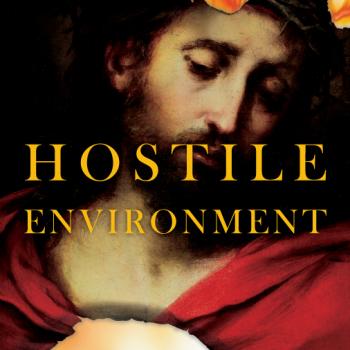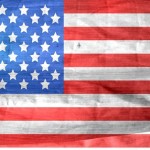It seems that about every six months or so I see an article like this one, arguing that the political or religious disparities in academia haves little to do with bias and much to do with self-selection. I get tired of such articles but expect more to come. There is nothing I can do to stop this nonsense. However I can supply an article that truly examines scholarship about academic bias so that these articles can be refuted.
Let’s set the table for this discussion. No one today disputes that we have extreme political and religious skew in academia. Individuals in academia are overwhelmingly politically progressive and nonreligious. The only real question is why. Many individuals, like the writer of this article, rely on a theory of self-selection. By this theory, the reason for the skew is that political and religious conservatives choose not to go into academia. Reasons given range from the notion that such conservatives would rather make more money; they do not like dealing with new ideas; they have nothing of value to offer, and they do not have the same ability to engage in critical thinking. Thus in explaining the disparity by theories of self-selection, those who make up the majority group in academia get to throw a few more shots at political and religious conservatives. Little wonder this is the popular theory for those left of center.
But those who make this argument generally do so by speculation rather than drawing on evidence. They certainly do not make their arguments with academic research. In a bit I will point out the couple of academic studies that lend a little support to this notion, but that support is very weak. But usually not even these studies are used in assertions about self-selection. It is just assumed that conservatives are either money-hungry, stuck on old ideas, non-creatives or non-critical thinking.
Just to show how offensive the self-selection thesis is let’s use it with another group. Men are overrepresented in academia as well. Can it be that women simply are less likely to choose to be in academia? Perhaps they are not interested in new ideas or have not learned how to critically think. Perhaps the topics covered in academia are not as interesting to women as they are to men. Perhaps, they do not want to make the sacrifices necessary to do science so that they can spend more time with their families? Perhaps they are too focused on making enough money for their families to consider an academic career? I can go on, but I trust I made my point. While there may be some self-selection with conservatives and women, where there is such a tremendous skew it is wise to see if there is evidence for discrimination, subtle bias, and/or institutional forces that limit these groups’ access to academia.
So what evidence can we see for this self-selection possibility? Neil Gross did an experiment where he sent letters to graduate advisors at a variety universities of a fictitious student asking about the graduate program. He varied whether the person worked for Barack Obama’s or John McCain’s presidential campaign in the letter. He found that it did not matter. The student’s email was treated the same regardless of whether it stated working for Obama or McCain’s election.
I previously wrote a critique of the book which showed why I think the results are not as strong as Gross argues that they are. I will not go into my entire critique; however, I do want to call attention to a decision Gross made when doing his project. He deliberately chose to have the student work with McCain’s and not Sarah Palin’s campaign because he did not think it would be believable if a prospective graduate student worked for her. Gross is essentially saying that if a student is too conservative, then that student cannot be a serious candidate for graduate school even as he argues that there is little or no bias in academia. What? If we really want to test bias, then it makes more sense to test it with the more extreme case and not the safer McCain case. The mere fact that Gross opted for the safer case suggests that despite his work, he knows that certain ideas are punished in academia.
The other research that even remotely provides some evidence of self-selection is work by Rothman et. al. They did a survey showing that few Republican or Christian faculty claim to have experienced discrimination. My problem with this work is that the terms Republican and Christian are too generic. As I will show below it matters what type of Christian you are as to whether you will face bias. Thus I am not convinced by this research, in light of other work, that we do not have a problem with academic bias.
So let’s look at the empirical evidence indicating that academic bias is a problem. Of course I have to start with my own work in Compromising Scholarship. I sent a survey out to academics in several disciplines and asked whether they would be more or less likely to hire someone if they were a members of certain groups. I included political, sexuality, religious, lifestyle and age groups. About half of the respondents stated that they would be less likely to hire someone if they were a conservative Protestant.
Think about that. Half of the respondents, who are professors at various colleges, openly state that they are willing to engage in religious discrimination. We can only imagine how many are willing to discriminate but choose to not put that on a survey. As it concerns political conservatives, I found almost a third of the respondents were less willing to hire someone if they are a Republican, but about forty percent were less willing if they are an NRA member. Not as bad as it is for conservative Protestants but unacceptable nonetheless.
Now you can see why generic measures of Christians and Republican are not as useful as talking about conservative Protestants or NRA members. The bias in academia is less when just talking about Republicans or Christians in the abstract. When you have an actual Republican who advocates for 2nd amendment issues or a Christian who believes the Bible to be the Word of God, then the situation dramatically changes.
Some may argue, perhaps individuals are willing to state that they will discriminate on a survey but are not willing to discriminate in real life. That seems unlikely, but it is possible. However, Stanley Rothman and S. Robert Lichter (See their chapter “The Vanishing Conservative” in The Politically Correct University) found that cultural conservative academics tend to work at lower status jobs than would be expected given their achievements and qualifications. So we have systematic evidence that a certain type of conservative, and social conservatives is the type most likely to be religious, is not compensated according to his or her level of productivity. Do you think that if we had evidence that blacks were not being rewarded to their level of productivity in academia that anyone would dare bring up self-selection as an explanation for their lack of success in academia? Yeah. Me neither.
Well maybe this is just a freak occurrence connected to the hiring process. Maybe, despite how bad it is when someone is unfairly kept from a job, once a conservative is hired, then he or she is just as free to argue for his or her ideas as anybody else. Nope. Wrong again. Yoel Inbar and Joris Lammers also did a survey of 800 social and personality psychologists finding that they are willing to discriminate against political conservatives when it comes to hiring, reviewing papers, reviewing grant proposals and invitations to a symposium. It is comparable to my work with two critical differences. First, they only concentrated on one discipline while I show that this type of bias occurs across a variety of scientific and humanities disciplines. Second they show that this bias plays out in a variety of ways. It is not just in hiring. It is also in whether one gets published or gets a grant that this bias plays itself out. One does not escape the bias once one gets hired. In fact the bias remains throughout one’s career.
I should know. Early in my career, my research concentrated on issues of race and ethnicity. While I offered some novel concepts, I think it is safe to say that for the most part, my work fit into the dominant race and ethnic academic paradigm. But over the last several years, I have been doing empirical work in anti-Christian bias in society and academia. The way my work has been treated has changed dramatically although I became better, not worse, in doing research. Reviewers are clearly more hostile to my work on anti-Christian bias than my work in race and ethnicity, and some of their critiques are almost laughable. Those who want to state that we can trust science because it enables an open search for the truth have never tried to publish work that violates the political and moral sensibilities of academics.
I got some insight into the source of this bias through some of my recent work. When my co-authors and I wrote an article based on open-ended questions to academics, we found that many of these academics have some of the same stereotypes I found in my research on Christianophobia. Academics see conservative Christians as not able to handle new ideas and not able to critically think. Sound familiar? The very arguments used to justify the notion of self-selection make up the very stereotypes people have of conservative Christians. I do not think that is a coincidence. Arguments of self-selection tend to be arguments that reinforce the distorted image many academics have of conservatives. Theories of self-selection are often less about scientific evidence and more about supporting the stereotypes and biases of those who do not like conservatives.
This does not mean that self-selection does not exist. But given the lack of empirical evidence we have for self-selection and the strong empirical evidence we have for arguments of discrimination, it occurs to me that we should begin examinations of the political and religious makeup of academia with a focus on reasons of bias with a slight nod to the possibility of self-selection. Instead, the majority of online articles do the reverse. They focus on self-selection with a slight nod to the possibility of bias. This is exactly opposite from what our empirical evidence has told us.
Let me address a counterpoint that someone is going to make and one with which I do not totally disagree. Someone will say that I am approaching this in an unwarranted dichotomous manner. It does not have to be either self-selection or academic bias. It can be both self-selection and academic bias. This means that political and religious conservatives choose to not enter academia, but they do so because they have seen minor evidence of some discrimination. But some will say that these individuals have a “persecution complex” and are seeing discrimination where it does not exist. So they are not necessarily being weeded out once they get into academia, but their fears of discrimination keep them from choosing academia. However, the empirical evidence is that their fears are justified, even if some individuals blow those fears up more than they should, and thus their concerns should not be dismissed. Given that evidence, it is not useful to talk about persecution complexes.
I do think there is an interactive effect by which the evidence of bias convinces some conservatives that academia is not for them. If we eliminated this type of discrimination, we would see fewer conservatives “select” themselves out of academia. Furthermore, the evidence presented here shows that the bias does not merely discourage conservatives from applying, but it continues to hurt them throughout their career. So if we really want to know why there are fewer conservatives, the evidence right now strongly swings to bias and away from the comforting notions (comforting for academics anyway) for self-selection.
With this much evidence of academic bias out there, I really do not know if those denying it are simply lazy or if they are too wedded to their belief that academics cannot be biased to see the evidence that many are. Let’s find out if it is laziness or ignorance. Next time you see one of those articles about how political and religious conservatives are simply choosing not to go into academia, can you send this blog entry to the author? Or at the very least, put it in the comments of the article? We can see how the author reacts to the new evidence. And maybe if we can get the word out, we can stop the dissemination of wrongful thinking connected to bad or misunderstood science. I know you share with me the desire to confront the science deniers (Wait! That is another stereotype of conservatives is it not?).
















